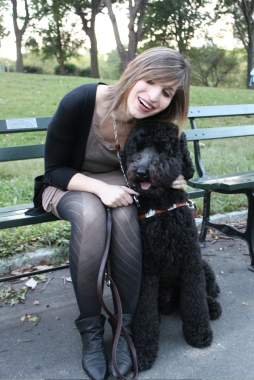
More than half of Moment readers say Ayn Rand’s ideas have no place in politics today, according to a reader survey.
Rand, the Jewish author and philosopher born Alisa Rosenbaum, is said to have influenced Republican vice presidential nominee Paul Ryan. And as Ryan prepares to take on vice president Joe Biden in the debates tonight, it remains to be seen how important her ideas will be.
According to the survey, just 43 percent of Moment readers say that her ideas belong in politics today.
Here are some of the top responses to our question, “Do Ayn Rand’s ideas belong in politics today?”
“Selfishness and rampant individualism will not help create a sustainable and livable society. Surely the years since the crash of 2008 have shown this to be true.”
“Since when are non-violent, non-hateful socio-economic worldviews beyond democratic discourse?”
“Capitalism has been successful because it is based on the very human qualities of greed, selfishness, and acquisitiveness–qualities extolled by Ayn Rand. Since no one in American politics today is suggesting that capitalism be eliminated, and since virtually all ideas (except those based on hatred toward identifiable groups of innocent people) should be subject to public discussion and debate, Ayn Rand’s ideas belong in politics today.”
“As Jews our imperative should be tikkun olam— i.e. to repair the world. This idea is incompatible with Rand’s philosophy of intense individualism and unbridled capitalism.”
“Rand’s ideas are appropriate for high school students who live in a world of absolute values. A mature polity must take care of its least powerful members.”
“All ideas are welcome, although some ideas are crazy. Still, crazy sometimes transforms. I think no ideas should be banned from politics but I do not think her ideas are good for America!”
“Her philosophy is timeless. It is based on the very best in human nature. Reading both novels should be required reading in every high school.”
“ALL ideas belong in American politics. We cannot be the Land of the Free without total freedom of thought and a willingness to consider, discuss, test, accept, or reject, all ideas of approaches and solutions. We must have extremes in our system (and Ayn Rand is not so extreme) in order to find a middle path that is the best solution for us.”
“It is selfish, an adolescent fantasy, overly, simplistic, and totally unworkable, for a society and the individuals within society. Anytime that any semblance of these ideas became a policy or law, the result was a disaster. It is also immoral and inhumane, catering to the selfish, grandiose impulses, while denying the human capacity for empathy, community, other measures of greatness, other than material. It shows both contempt and denial of human vulnerability that we all share.”
“All ideas should be able to be discussed in politics. Ayn Rand’s ideas can then be thoroughly aired and rejected.”
“Ayn Rand’s ideas represent an extreme of economic individualism divested of any sense of responsibility to others–either other individuals or to a broader community–to the point of being completely antisocial. It represents a sort of ethical solipsism.”
“Her ideas result in policies that are the opposite of tikkun olam. This is in conflict with the Jewish saying: if you save one life, it is as if you have saved the world. Rand says your only duty is to save yourself. She is right to be suspicious of government; but wrong to assume that government is always and inevitably an enemy of the people.”
“When I was a young girl, I loved her books. Now that I am older and wiser, I see she had no compassion for the less fortunate or even the middle class as we know it today.”
“She stands for greed, cruelty, meanness, nastiness, and sheer psychopathy. Unfortunately, this crackpot philosopher and fourth-rate novelist is now becoming part of the US mainstream. If and when fascism comes to America, it will be in Randian garb! So no, Rand’s ideas don’t ‘belong’ in politics. But alas, they are well entrenched in American politics, both at the grass-roots level and among the corporate elites. And they are growing, like some sci-fi monster.”




